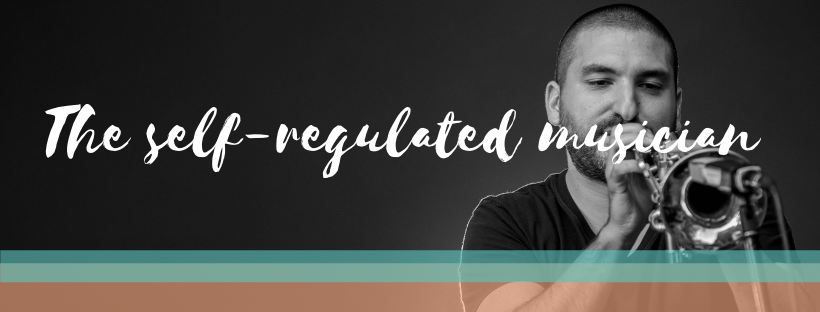
Keeping yourself in check
It’s really important to understand yourself and develop self-awareness but that’s really only the first step in building emotional capability and intelligence.
Once you understand yourself better and WHY you’re experiencing certain thoughts and emotions, the next step is to take control of these emotions and how you react… To get back up when the struggle is real and to keep going, to manage your reaction to a huge mistake, or to stay calm in conflict with someone else.
In it’s most basic form, self-regulation allows us to bounce back from failure and stay calm under pressure. These two skills will carry you through life, more than other skills, and the good news is that these are skills that you can learn.
The self-regulated musician
Is resilient, calm and disciplined
- Adapts to change
- Stays calm in times of stress
- Is a strong performer
- Gets lots of work and gigs
- Is very successful
- Has a clear mind
- Is able to focus easily
- Is more productive
- Achieves targets and goals
- Has great relationships
- Is consistently creative
- Has good work/life balance
- Deals with challenges both on and off stage
How do you build self-regulation?
Although it seems straight forward, self-regulation is tough, particularly in the most stressful situations. It involves taking a pause between a feeling and an action… Taking the time to think things through, make a plan, wait patiently BEFORE you react. Here are just a few ideas to get you started on the road to self-regulation:
- Learn what drives you crazy! Reflect on the times you’ve been driven totally crazy and plan strategies. Here’s our FREE worksheet.
- Reflect on your behaviour and how that impacts on both you and those around you using our FREE intention vs reaction worksheet.
- Reframing. Be curious. If someone hasn’t shown up for a rehearsal then try to reframe and be curious. Change from “it’s so frustrating when she does this, I bet she hasn’t learnt the songs” to “let’s check in with her and see where she’s at, something may have happened.”
- Practice mindfulness (bringing yourself back into the present moment… Not focusing on the past or the future)
- Acceptance of yourself and others. Does it matter if someone works in a different way? E.g. they don’t rehearse until the week before the show even though you’ve been rehearsing for weeks? As long as they achieve the required standard then maybe not.
- Take control of your work life balance. Prioritise your tasks to ensure you do the right thing, not just the next thing.
- Keep things in perspective, keep moving forward, have faith that you can achieve the outcome you’re aiming for.
Over to you
- How easy do you find self-regulation?
- What situations are particularly tough for you?
- What helps you to regulate your emotions?
We’d love to hear your thoughts. We’d also like to see some examples of self-regulation in the music industry… Have you come across any powerful examples?
If you’ve enjoyed this article, then please share it far and wide.